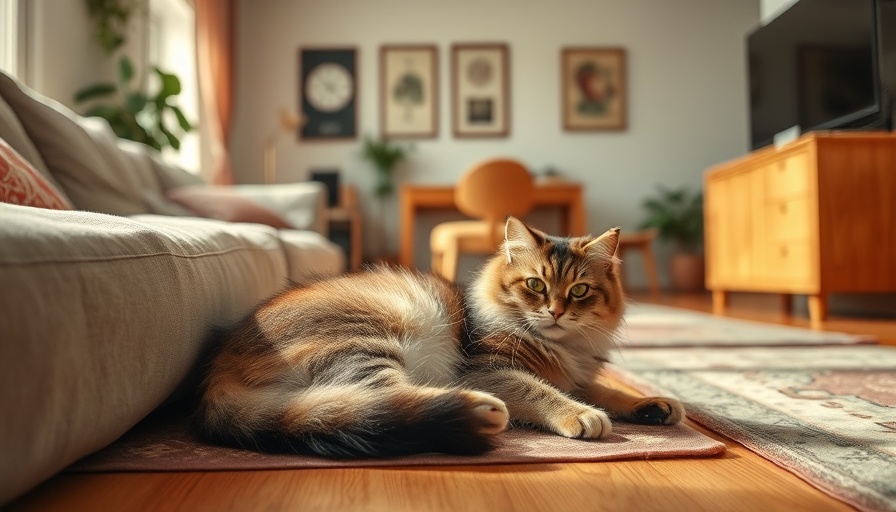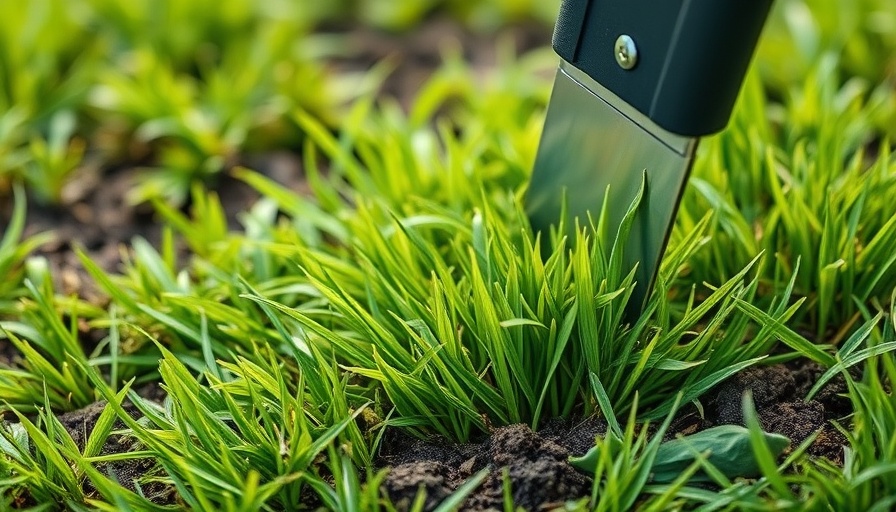
Understanding Cat Spray and Its Causes
As a homeowner, few issues are as frustrating as dealing with cat spray odors in your garden. Whether it’s your own cat claiming territory or stray cats marking their presence, understanding the motivations behind cat spraying is essential for effective management. Cats often spray to establish dominance or as a response to environmental stressors. This behavior can be particularly common in unneutered males, but it can also affect females and neutered cats when they're stressed. Interestingly, studies show that around 10% to 30% of domestic cats exhibit spraying behavior at some point, particularly in multi-cat homes or areas with aggressive stray cat populations.
The Chemical Challenge: Understanding Cat Urine
Cat urine comprises urea, ammonia, and pheromones, and once exposed to air, its odor intensifies. This chemical breakdown can make common cleaning products ineffective. Many homeowners may mistakenly use hot water, which can actually set the odor deeper into porous materials like soil or wood surfaces. Instead, understanding these chemical reactions is key to properly tackling the problem.
Identifying Sprayed Areas in Your Garden
Before embarking on any cleaning regimen, you need to locate the exact areas affected by cat spray. Here’s how:
- Visual Inspection: Look for discolored patches or dried spots that indicate urine presence.
- Odor Detection: Follow your nose! Walk around your garden to identify spots with the strongest odors.
- Testing with UV Light: Many pet supply stores sell UV lights that can help detect cat urine, which often glows under purple light.
Step-by-Step Cleaning Guide for Cat Spray Odor
Acting quickly when you notice a fresh spray can significantly improve your chances of odor elimination. Here’s a step-by-step guide to follow:
1. Immediate Actions for Fresh Sprays
- Blot, Don’t Rub: Gently blot up the urine with paper towels or a clean cloth to absorb as much liquid as possible.
- Cold Water Rinse: Rinse the area with cold water. Beneficial bacteria in nature can progress if urine is allowed to set, but cold water aids immediate cleaning.
2. Natural Cleaning Solutions
Utilizing natural solutions can be both effective and eco-friendly:
- Vinegar and Water: Mix equal parts white vinegar and water, pour it over the affected area, and let it sit for 10-15 minutes before rinsing thoroughly. Vinegar neutralizes the ammonia in cat urine effectively.
- Baking Soda Method: After cleaning, sprinkle baking soda in the area to absorb remaining odors. Leave it overnight before vacuuming.
Long-Term Solutions and Preventative Measures
To maintain an inviting garden space, implementing preventative strategies are crucial:
- Spaying/Neutering: If you have cats, consider spaying or neutering them to reduce spraying behaviors.
- Creating Barriers: Install physical barriers or use deterrent sprays to keep uninvited cats away from your garden.
- Landscaping Choices: Certain plants may deter cats—look for aromatic herbs or citrus-scented plants that cats tend to avoid.
Why This Matters: Enhancing Your Outdoor Space
As a homeowner or property manager, maintaining the appearance and functionality of your outdoor spaces is vital, particularly in seasonally intense climates like Michigan. By understanding cat spraying behaviors and employing effective cleaning methods, you not only enhance the aesthetic of your garden but also promote a healthy outdoor environment. This proactive approach ensures you can enjoy your garden and that it remains inviting to both residents and guests.
Call To Action
Are you ready to reclaim your garden from unwanted odors? Start today by implementing these cleaning tips and preventative measures, ensuring your outdoor space stays vibrant and welcoming for everyone!
 Add Row
Add Row 
 Add
Add 


 Add Row
Add Row  Add
Add 
Write A Comment